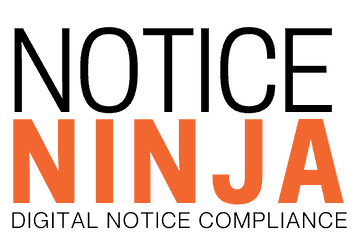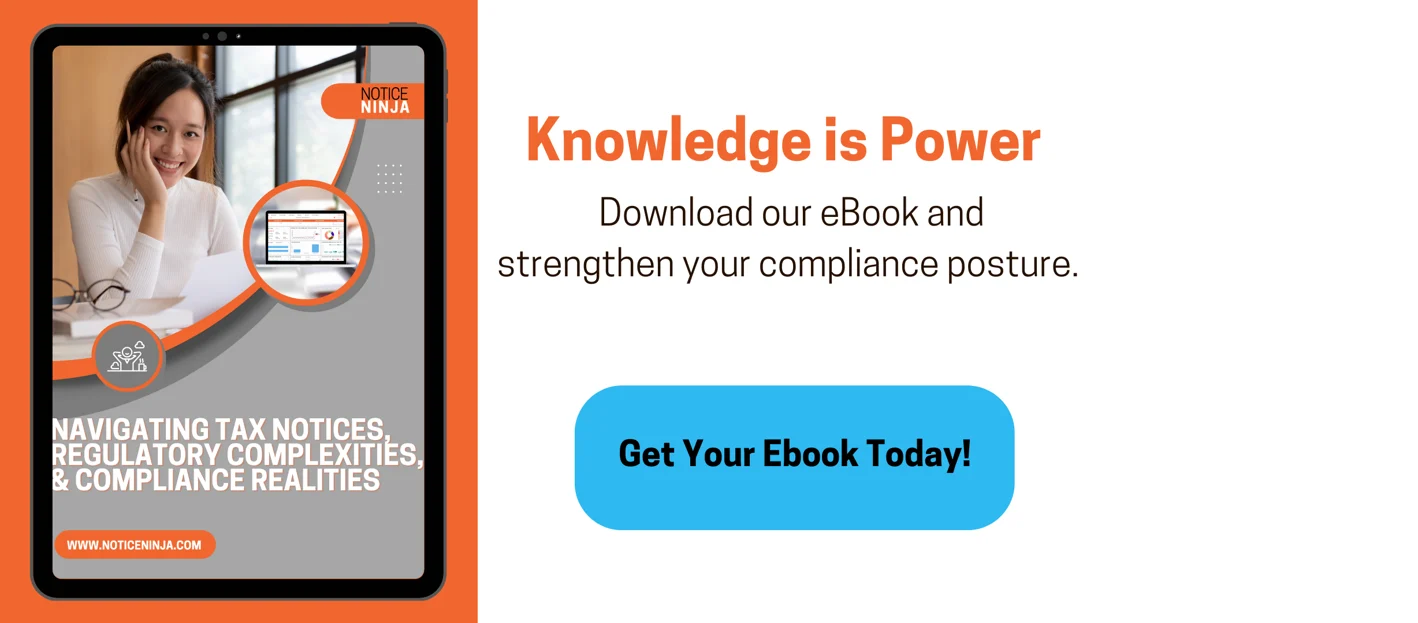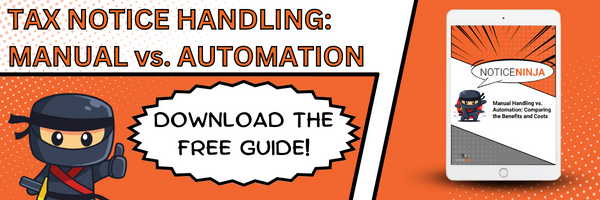Yes, NOTICENINJA is corporate tax notice compliance software that automates key workflows including notice assignments. The platform employs a rule-based system that can manage multiple level rules and ensure notices are directed to the appropriate stakeholder. As a result, you’ll never have to worry about notices being misdirected or slipping between the cracks.
.png)
What is IRS Notice 1450?

14 June
Tax notices and IRS regulations can change by the year and create enormous confusion, and keeping track of IRS notices is often the difference between timely correspondence and getting a lien placed on essential business assets.
Notices can also change as companies or individuals (i.e., sole proprietorships) pay off debt or make new investments, which could have a bearing on whether:
- The IRS is in a position to place a lien on your property,
- Or is obligated to remove a lien.
We'll cover these matters regarding IRS notice 1450—but first, what is IRS notice 1450?
Understanding IRS Notice 1450
IRS Notice 1450 is titled "Instructions for Requesting a Certificate of Release of Federal Tax Lien," and it's what the IRS sends to indicate both:
- A tax lien has been imposed against some of your property
- The process required to release the lien and request a Certificate of Release
Removing a lien could involve fees on top of the original amount owed, meaning it's far more advantageous to prevent such liens in the first place. Even if it's too late this time, and you can't effectively dispute it, sharpen your IRS notice organization going forward to prevent future liens.
These types of notices do get sent to the owners’ and officers' homes and could result in a warrant for the named officers. The IRS bases that on the information provided during the business registrations and quarterly and annual filings.
What to Do After Receiving Notice 1450
Take it one step at a time and read the notice carefully, paying attention to the short window to dispute it if you can prove an error. Consider what your IRS Notice 1450 is in response to for greater context.
IRS Notice 1450 is a follow-up to a previous notice of intent to lien and probably a notice of a lien (or levy). You'll likely need more information, so contact your IRS representative to learn why they sent Notice 1450 in your particular case. That may be easier by activating an online IRS account (rather than navigating their frequently changing automated phone tree).
Once you have the proper background info, you can decide which of the lien resolution methods given by the IRS you can follow to discharge the lien, whether all at once or in the future.
Managing Liens on Your Property
Your representative or online account will usually show that the IRS placed the lien after some failure to respond to a previous notice about a listed balance. These "balance due" notices are typically sent every 4–6 weeks and include instructions for paying the past-due amount (a bill).
Now, it's necessary to handle the lien and the bill. You can do this in one of three general ways:
- Discharge of property. If you intend to sell the property being liened, you can request the IRS to allow a discharge for the purposes of sale in exchange for a portion (or all) of the profit.
- Subordination. The IRS may agree to deprioritize their property lien if it would allow you to use the property to obtain liquidity—which they have an interest in allowing you to secure because they can take the amount due from it. It is common for house liens where the taxpayer wants to refinance the property, but the bank will only agree if their claim takes priority over that of the IRS.
- Withdrawal. An umbrella category covering any of the following:
-
- Paying off the lien
- Entering a payment plan or tax relief program
- Reaching an offer in compromise
- An expired collection period (usually ten years for a Notice 1450)
Keep Organized to Prevent Liens
What is the best way to handle an IRS Notice 1450? As much as we hope this helps you obtain your Certificate of Release of Lien, nothing beats preventing adverse IRS actions in the first place. The secret is to stay organized by automatically managing your notices and properly synchronizing them with your workload.
Automating your IRS notices enables you to pay or otherwise address balances owed with perfect timing, which is the best way to prevent liens from being imposed. Whether you're interested in setting up payment plans or managing balances owed through some other strategy, NOTICENINJA can help. Schedule a free consultation today, and start mastering IRS notices—before they master you.


